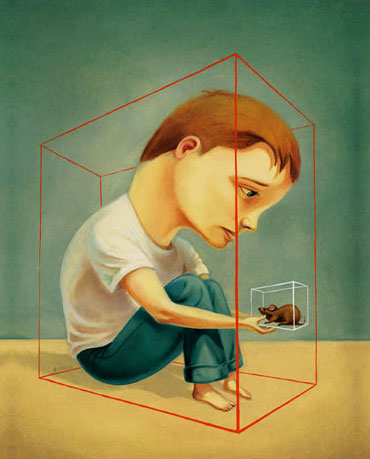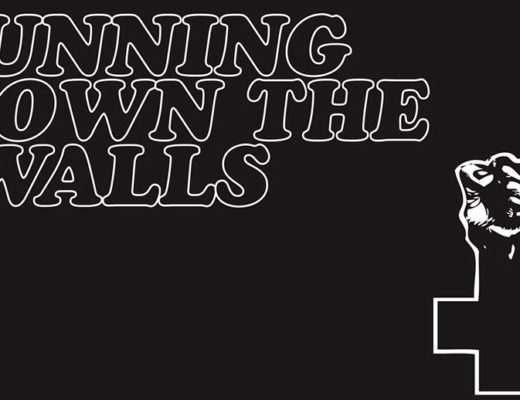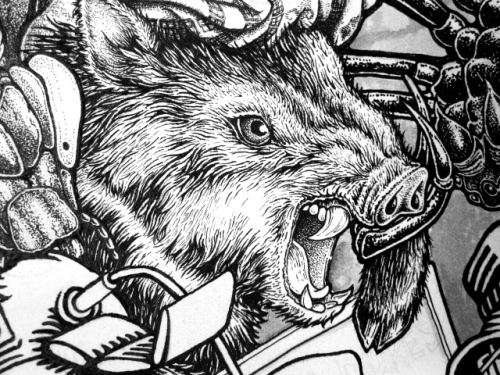This blog was originally hosted at Empty Cages Design.org as part of a series on Overcoming Burnout from 2016-2017. It has now been turned into a book that is available at: https://solidarityapothecary.org/overcomingburnout/
Before getting ill, I had zero idea that my body might give up before my drive and will to organise. I didn’t know much about the adrenal system, nutritional deficiencies, or how trauma affects the body. I was so dissociated from my body that I didn’t even know that my body was about to give up. I couldn’t feel the cues that I was exhausted and depleted, I didn’t hear the signals that I needed rest or that there was a heaviness in my chest I could not shift. Recovering from burnout for me, therefore, has been about building an awareness of my own body as more than just a machine that get’s stuff done. Pain has made me connect again, made me feel. Despite the brutality of it, I am grateful.
Dr. Peter A. Levine, author of In An Unspoken Voice: How the body releases trauma and restores goodness, writes how all our experiences (tracing back as early as growing in our mother’s womb), all of the stresses, injuries, and trauma, as well as the feelings of safety, joy, grace and goodness that have affected our lives – all of these change the shape of our bodies” [1]. This kind of statement always felt a bit new agey to me, and I felt an initial rejection of this concept. However, after reading and researching a lot this year in the fields of neurobiology, trauma, and medicine, it’s clear that our life experiences intimately affect our physiology. This blog aims to explore some of these patterns.
Formal trauma definitions introduce how traumatisation occurs when we are intensely frightened and either physically restrained or perceive we are trapped. We freeze in paralysis and/or collapse in overwhelming helplessness. However, this might explain individual incidents, like taking a beating from the police, or a parent, or being run down by a car. But it doesn’t do justice to the complexity of chronic stress, trauma, and immobility where emotional symptoms surface such as numbness, shutdown, entrapment, helplessness, depression, fear, terror, rage, and hopelessness. Dr. Levine writes how “the person remains fearful, unable to imagine safety from a never ending (internal) enemy and unable to reengage with life”.
Trauma, Relationships, and Intimacy
As a fairly “high-functioning” person, (whatever that means… productive in capitalism?!), I hadn’t believed that the above symptoms were present in my life, or that the books I was reading applied to me because of my capacity to get shit done. Surely I can’t be that messed up if I’m able to hold down a job or kick-ass in a campaign? Bessel van Der Kolk (author of The Body Keeps the Score), however, argues that many patients are professionally successful, but their intimate relations are bleak and distant. He wrote how they had enormous trouble negotiating intimate relationships, often veering from indiscriminate, high-risk, and unsatisfying sexual involvements to total sexual shutdown [2]. After trauma, the world becomes sharply divided between those who know and those who don’t. People who have not shared the traumatic experience cannot be trusted because they can’t understand it.
Since getting out of jail, relationships have been a total minefield. With most partners, I feel like a total alien, like we are from different planets in terms of life experiences. I feel most at ease with those that have been inside themselves or somehow been in a position of prisoner support. I think a key driver of my anti-prison work is desperately seeking relationships with people that understand. Like a veteran that only feels alive when revisiting their traumatic past, somehow re-subjecting myself to the prison – via prison visits, talks, and events, or writing and reading about prisons – brings me a strange sense of comfort or familiarity.
Bessel van Der Kolk writes how achieving any sort of deep intimacy – a close embrace, sleeping with a mate, and sex – requires allowing oneself to experience immobilisation without fear. Intimacy after prison is a messy experience, and in reflection, I know that my workaholism served me as a way of blocking it as much as possible. To be still, gentle, or lie-in with someone felt torturous when all my body wanted to do was stop itself from feeling anything at all or make sense of the internal whirlwind of unexpressed emotions in my body.
Workaholism and Extremism
Dr. Levine writes how overwork, sex and so forth, are all ways to suppress, numb, or control the body – or are, ironically, misdirected attempts to feel it. He writes how the degree to which we cannot deeply feel our body’s interior is the degree to which we crave excessive external stimulation. We seek titillation, overexertion, drugs and sensory overload. While drug use was a big part of my late childhood, as I grew older, working myself to death became the only way I could feel (or continue to not feel). Subjecting myself to extreme situations, such as prisons or street conflicts with the police, or night time actions before I got sent down, were the only way I could feel alive. Everything else felt banal.
Friends joke with me that I always have something ‘heavy’ going on, like supporting suicidal friends, or coping with yet another bereavement, or setting myself an impossible schedule and throwing myself into another mammoth intimidating campaign. It was like I could only exist at this dark end of life’s spectrum of experiences. Van Der Kolk writes how his patients often complain about a vague sense of emptiness and boredom when they are not angry, under duress, or involved in some dangerous activity. What would floor many people, was a totally normal daily experience for me. When things started to ease up, I always had a sense of dread that something awful was round the corner. I told an ex-partner that I had to feel joy when it came and not take it for granted, because it wouldn’t be long till it was gone again. So my life has been these extremes of quite heavy messed up shit, and fleeting moments of joy and passion, but overall a feeling like I was doomed to this reality forever.
Disembodiment, Lack of Safety and Capitalism
I realise now my response to trauma has been disembodiment and the deadening of my feelings. I had lost the capacity to feel the subtleties in life. Now, I am trying to rebuild this relationship with my body, and it has felt like I am almost alive for the first time. One of the first exercises I did was in the shower, where you let the water run over a certain part of your body and really try to feel the sensations. Likewise, self-massage and body scans can start to cultivate a gentle mindfulness. I think herbalism was also a route to this awareness, anchoring me into subtle changes in the taste or texture of plants.
Dr. Levine writes how emotional regulation, our rudder through life, comes through embodiment. The awareness of body sensations is critical in changing functional and emotional states. It’s obvious that I was unable to implement a “sustainable lifestyle” because I had no rudder to do this. I could not get the feedback, I could not read or hear my body when everyone else around me was telling me to slow down. Overcoming burnout is basically impossible without cultivating body awareness. Van Der Kolk shares that we need to register and act on our physical sensations to keep our bodies safe. “The price for ignoring or distorting the body’s messages is being unable to detect what is truly dangerous or harmful for you and, just as bad, what is safe or nourishing.”
However, without a feeling of relative safety, described by Dr. Levine as “an atmosphere that conveys refuge, hope and possibility”, we cannot hope to heal. This leaves me feeling despairing in our capitalist context, thinking of how many people are denied this existence. When you chronically feel unsafe, not just because of past trauma, but because of the state of the world, this feels really hard to find. Every man feels like a threat, that they will touch you without your consent or worse, every cop car a sign of danger, every emotional person seeming like a potential extractive drain of your emotional labour. For me, healing from this has been recognising that not everything is a threat, that there are people around me who care about me and with whom I feel safe. That returning to prison is not imminent, and that not everyone I fall in love with is going to eventually abandon me. But this stuff is written into our physiology, in ways I never comprehended, and so for me to cultivate a feeling a safety, I have had to reconnect with my body and give it reassurance that I am safe and most importantly, safe enough to feel.
Dr. Levine articulates that:
“Trauma sufferers, in their healing journeys, learn to dissolve their rigid defences. In this surrender they move from frozen fixity to gently thawing, and finally, free flow. In healing the divided self from its habitual mode of dissociation, they move from fragmentation to wholeness. In becoming embodied they return from their long exile. They come home to their bodies and know embodied life, as though for the first time. While trauma is hell on earth, its resolution may be a gift from the gods.”
Coming back to my body, despite it being triggered by bone-crushing agony in my rib cage, has been radically transformational. It is only now that I can feel that I’m tired or sore that I am learning to set boundaries and limits in my life that will protect me. Finally, I am able to have slow and sensual interactions with people, and I really believe now that my capacity to actually have a healthy relationship is so much more likely now that I can value the subtleties of my senses and gain a sense of safety.
Van Der Kolk writes how “traumatised human beings recover in the context of relationship: with families, loved ones, AA meetings, veteran’s organisations, religious communities, or professional therapists. The role of those relationships is to provide physical and emotional safety, including safety from feeling shamed, admonished, or judged, and to bolster the courage to tolerate, face, and process the reality of what has happened.” For those involved in social struggle, relationships are at the root of safety – and our responsibility is to try to cultivate this in our groups, collectives, and networks so that we can find healing and strength to fight back against this world that traumatises us all.
References
1. In an Unspoken Voice: How the Body Releases Trauma and Restores Goodness, Peter A. Levine
2. The Body Keeps the Score: Brain, Mind, and Body in the Healing of Trauma, Bessel van der Kolk





No Comments